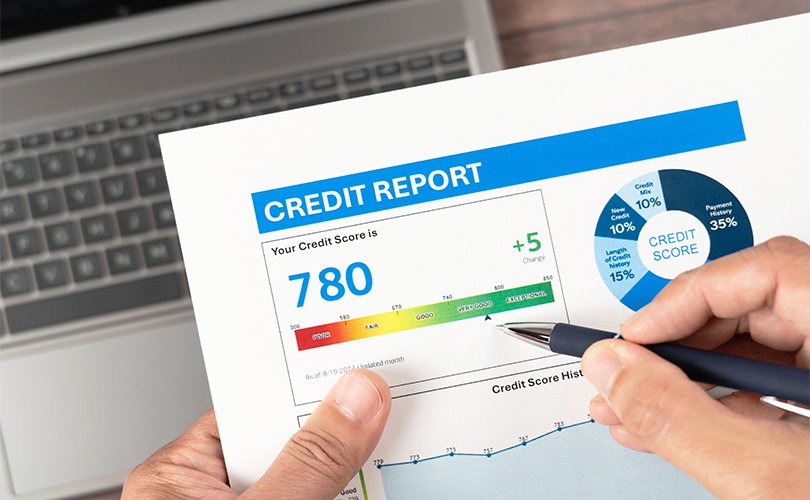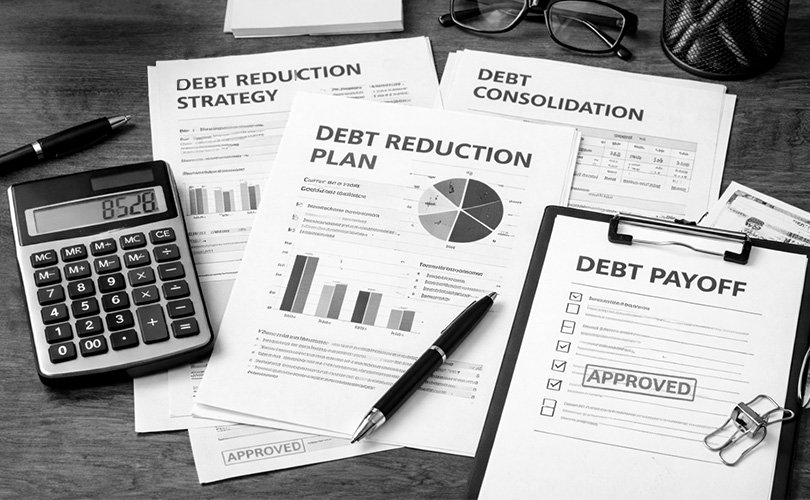

Do you know that settling a loan doesn’t mark the end of your credit journey—but rather the beginning of your credit comeback story? Many borrowers in India wrongly believe that a settlement ruins their chances of financial recovery. But here’s the truth: you can rebuild, and thousands already have. As reported by TransUnion Cibil, proactive borrowers who follow consistent financial habits have successfully increased their CIBIL scores within 12 to 24 months post-settlement.
If your CIBIL score has taken a hit after resolving debts, don’t despair. In this article, let’s walk through a practical, step-by-step plan to improve your CIBIL score after debt settlement, backed by real examples, human insight, and strategies tailored for Indian borrowers.
Let’s get this straight—settling a debt is better than defaulting. But it still sends a signal to credit bureaus that you didn’t repay the full amount. That’s why your credit report typically reflects “Settled” or “Written Off” against the closed account, rather than “Closed” or “Paid in Full.”
This impacts your credit score, often dragging it down by 50 to 150 points. The more recent the settlement, the more significant the change. However, the impact of loan settlement on credit score fades over time—and that’s where your effort matters.
A family man from Mumbai fell into a severe debt crisis after becoming a victim of online fraud, which disrupted his ability to repay loans. As missed EMIs piled up, he endured intense creditor harassment, including threatening calls and even contact with his friends and family, causing mental distress and reputational damage.
In desperation, he approached Settle My Loan (SML). Upon enrolling in our settlement program, our paralegal team took over all creditor communication and stopped all harassment, including illegal outreach to his personal contacts. Our legal team prevented further legal escalation and worked swiftly to resolve the issue.
With nine creditors and an outstanding debt of ₹11,23,342, SML negotiated settlements with six creditors within three months, achieving an average 60% reduction in dues. The client regained control of his finances, restored his peace of mind, and moved forward debt-free—without the shadow of harassment.
1. Check Your CIBIL Report Thoroughly
Start by getting your free credit report from CIBIL. Go through each section carefully.
Look for:
If Settle My Loan negotiated a settlement with credit clearance, your account might show “Closed” with “NIL Outstanding”—a big plus for your score.
2. Start Using a Secured Credit Card
If you’ve been blacklisted for unsecured credit, don’t worry. Many banks offer secured credit cards against a fixed deposit.
Why it helps:
Stick to small monthly spends, pay in full, and you’ll see steady improvement.
3. Make All Payments—Big or Small—On Time
Late payments are poison to a recovering score. Whether it’s your electricity bill, Netflix subscription, or a small EMI—pay on time. Every timely payment counts.
Use autopay features, mobile apps, and calendar reminders. This is one of the simplest yet most powerful financial habits to improve CIBIL score.
4. Keep Credit Utilization Below 30%
Credit bureaus track how much of your credit limit you actually use. Using ₹18,000 of your ₹20,000 credit limit is a red flag. Using ₹5,000 is a green light.
Keep your utilization ratio low. It’s one of the most effective steps to boost CIBIL score.
5. Avoid Applying for Multiple Loans or Cards at Once
Every loan or card application results in a “hard inquiry,” which lowers your score slightly. Too many in a short span? That’s a red flag.
Stick to one active credit product, build its history, and wait 6–8 months before applying again.
6. Don’t Close Your Old Accounts
Credit age matters. Older accounts with good history act like gold stars on your credit report. Don’t close them—even if you’re not actively using them.
This simple tactic supports post-settlement credit recovery without additional effort.
7. Dispute Any Errors on Your Report
Mistakes happen. If your report still shows outstanding dues after settlement—or a “written off” tag instead of “settled”—file a dispute.
You can do this via CIBIL’s dispute resolution platform. Better yet, have Settle My Loan assist. Their legal and paralegal teams ensure settlements are properly recorded and communicated to credit bureaus.
At Settle My Loan, the relationship doesn’t end at debt settlement. It continues until you’ve rebuilt your financial future.
Here’s how they help:
It’s a full-circle approach that helps you not just escape debt, but rise stronger.
Here’s what we learned:
Remember, credit isn’t about being perfect. It’s about progress.
You’ve already taken the first step by settling your debt. Now it’s time to rebuild.
Need help repairing your credit report?
Want to make sure your settlement doesn’t leave a lasting mark?
Let Settle My Loan guide your recovery—with FREE consultation, expert financial support, legal help, and a roadmap to a healthier credit future.
Your score drops because a “settlement” means you paid less than the full amount you owed. On your credit report, the account is marked as “Settled” instead of “Closed” or “Paid in Full.” This signals to future lenders that you didn’t meet the original agreement, which temporarily lowers your score.
With consistent, positive financial habits, you can typically start seeing a significant improvement in your CIBIL score within 12 to 24 months after the settlement.
The best first step is to get a secured credit card against a fixed deposit. Using it for small purchases and paying the bill in full and on time each month is a powerful way to build a new, positive payment history that gets reported to CIBIL.
Keep your credit utilization ratio below 30%. This means if you have a credit card with a ₹50,000 limit, you should try to keep your outstanding balance below ₹15,000. A low utilization ratio shows lenders you aren’t financially overextended.



